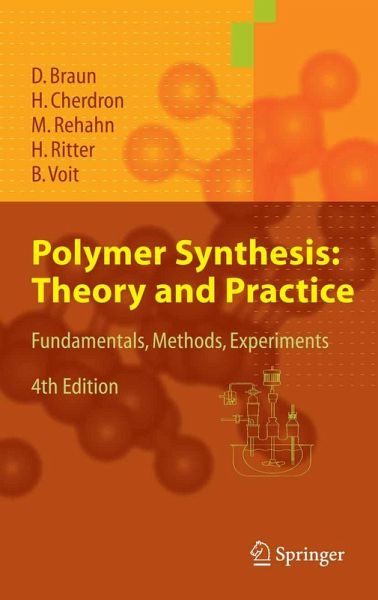
Polymer Synthesis: Theory and Practice (eBook, PDF)
Fundamentals, Methods, Experiments

PAYBACK Punkte
31 °P sammeln!
This Laboratory Manual contains detailed descriptions for the synthesis and characterization of macromolecules. Around 110 elaborated examples, consisting of descriptions of experiments, as well as sufficient theoretical explanations enable the reader to learn about the syntheses, modification, characterization and properties of polymers including recent developments. All experiments can be conducted with adequate laboratory equipment. Suitable for students in organic and polymer chemistry as well as for chemists in industry who want to acquaint themselves with the theoretical and practical as...
This Laboratory Manual contains detailed descriptions for the synthesis and characterization of macromolecules. Around 110 elaborated examples, consisting of descriptions of experiments, as well as sufficient theoretical explanations enable the reader to learn about the syntheses, modification, characterization and properties of polymers including recent developments. All experiments can be conducted with adequate laboratory equipment. Suitable for students in organic and polymer chemistry as well as for chemists in industry who want to acquaint themselves with the theoretical and practical aspects of macromolecular chemistry.
Dieser Download kann aus rechtlichen Gründen nur mit Rechnungsadresse in A, B, BG, CY, CZ, D, DK, EW, E, FIN, F, GR, HR, H, IRL, I, LT, L, LR, M, NL, PL, P, R, S, SLO, SK ausgeliefert werden.












